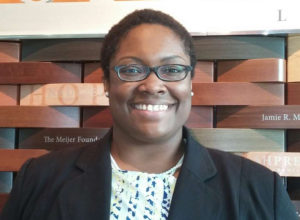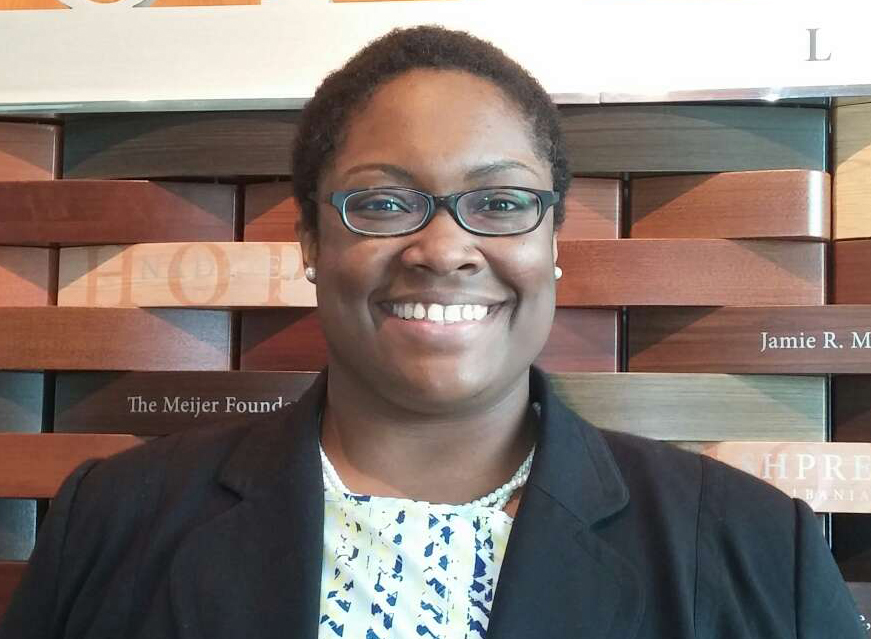Every other month, we highlight one of Van Andel Institute Graduate School’s doctoral students. This month features Candace King, a student in the laboratory Dr. Matt Steensma. Candace studies a rare disease called neurofibromatosis type 1 (NF1), which causes non-cancerous tumors on nerves, most often in the brain and skin. People with NF1 are more susceptible to developing cancer and often face a host of other health problems, such as congenital heart defects and learning disabilities.
How would you describe your area of study to your grandmother?
I study a disease call neurofibromatosis type 1 (NF1) and the tumors the disease produces, which are called malignant peripheral nerve sheath tumors (MPNSTs). These are aggressive tumors that wrap themselves around peripheral nerves. My jobs in the lab are to understand these tumors and discover new treatment options for patients. The goal of my work is to decrease the mortality rate caused by these tumors.
What is your primary motivation for persevering through graduate school?
As a person dealing with a chronic illness, I personally rely on the findings of biomedical research to manage my care. This motivates me to continue to generate data that could directly change the care for patients with NF1.
What do you want to do with your degree?
I want to pursue a career in education and science communication.
Did you take time off before starting your Ph.D. degree or come directly from an undergraduate or master’s degree program?
I came directly from a Master’s degree program.

How has your previous coursework contributed to your breadth of knowledge?
My previous undergraduate and some of my graduate work exposed me to the necessary cellular and molecular biology background needed for this program. Other graduate work that I have done introduced me to clinical coursework that provided a different perspective on the need for biomedical research.
Do you think there is any value in social networking with other graduate students in non-related fields?
I highly recommend this. I am lucky that my friend group outside of this program consists of Ph.D. students and graduates in other fields like education and sociology. It has been awesome picking their brains about the process of research and finding careers.
How do you think earning an advanced degree will change your role in society?
As a double minority, I understand that I am a rarity in science. I hope to use my degree to make advances in both cancer research and increasing the number of women and minorities in biomedical research.
Did your past experiences in life or education help prepare you for graduate school or did you have to develop different strategies to succeed?
Both. My past experiences gave me the academic preparation that I needed; however, because this program is unique in its structure, I definitely had to develop new techniques.
What is your favorite stress-reduction technique?
Stream-of-consciousness writing is my favorite stress-reduction technique.
What accomplishment (academic or other) are you most proud of?
Passing my comprehensive exams!
If you were asked to put something in a time capsule for each year you have been in the program and this capsule would not be opened for 25 years, what would you contribute?
A Western blot.
If you hadn’t been admitted to graduate school, what do you think you would be doing right now?
I would probably be an educator or maybe even an actress.
